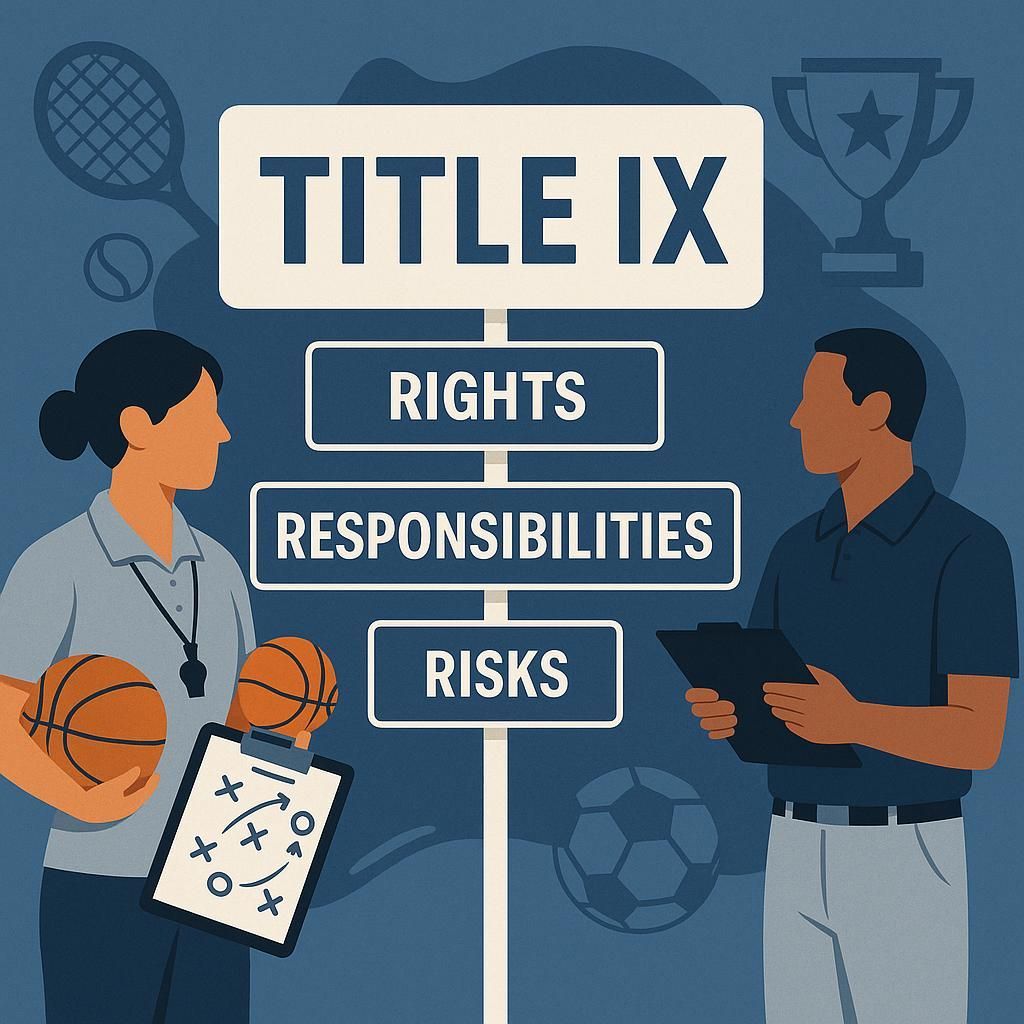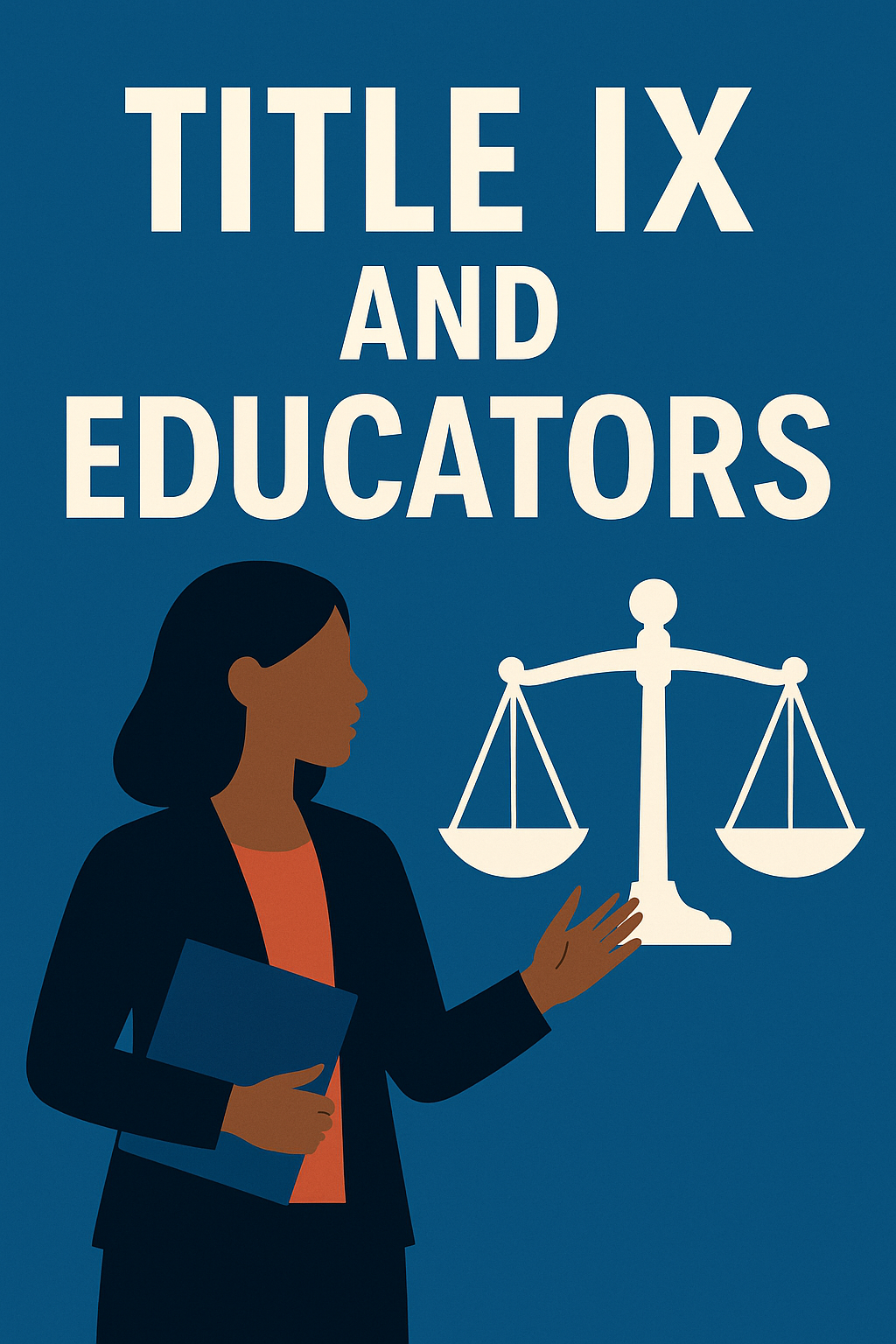Is it Important for SPED Teachers to Be Familiar with Special Education Law?
Special education (SPED) teachers play a vital role in ensuring that students with disabilities receive the education and services they need. However, to fulfill this role effectively, SPED teachers must have a solid understanding of special education law. Familiarity with the Individuals with Disabilities Education Act (IDEA), and other state and federal laws, is essential for maintaining compliance, protecting students’ rights, and ensuring proper educational accommodations.
Understanding Special Education Law
Special education law governs the educational rights of students with disabilities and mandates the services that schools must provide. The cornerstone of this legal framework is the Individuals with Disabilities Education Act (IDEA), which ensures that students with disabilities are entitled to a free and appropriate education (FAPE) in the least restrictive environment. Teachers who are unaware of these legal standards risk inadvertently violating student rights.
Why SPED Teachers Need Legal Knowledge
SPED teachers interact closely with students and parents in creating Individualized Education Programs (IEPs). Knowledge of the law helps teachers:
- Ensure that each student's IEP is legally compliant.
- Protect the privacy rights of students under laws like the Family Educational Rights and Privacy Act (FERPA).
- Advocate for students’ rights when dealing with school administrators and education policy changes.
Teachers who understand their legal responsibilities can take action to support their students effectively, whether they are dealing with disciplinary actions or ensuring students receive proper services.
The Role of IEPs in Special Education
The Individualized Education Program (IEP) is a legally binding document that outlines a student’s learning goals and the support they will receive. Teachers play a critical role in developing and implementing IEPs in compliance with the law. Understanding special education law ensures that SPED teachers can:
- Develop realistic and achievable goals for students.
- Collaborate with school administrators to ensure proper resources.
- Stay compliant with both state and federal regulations.
When creating an IEP, teachers must adhere to educational standards and ensure the learning environment is inclusive. An understanding of special education law protects both students and educators by ensuring educational institutions meet their legal obligations.
Compliance with Title IX and IDEA
In addition to IDEA, Title IX of the Education Amendments of 1972 prohibits sex-based discrimination, including in special education programs. For SPED teachers, understanding Title IX ensures that students are treated fairly and equitably, particularly in matters related to discipline, classroom accommodations, and access to educational programs.
By understanding Title IX and IDEA, SPED teachers also protect themselves legally. Any action taken by a teacher that violates these laws can lead to serious repercussions for both the teacher and the school system. Ensuring compliance with federal law is therefore crucial for maintaining a safe and inclusive learning environment.
Ensuring Student Privacy in Special Education
SPED teachers must also be familiar with privacy laws that protect students. The Family Educational Rights and Privacy Act (FERPA) governs how schools manage and share student information. Teachers must understand FERPA to avoid unauthorized sharing of sensitive information, such as a student’s disability or accommodations.
FERPA also requires schools to obtain parental consent before disclosing educational records, including IEPs, to third parties. This law ensures that students with disabilities have their privacy protected and that teachers respect these legal boundaries.
Legal Responsibilities Beyond the Classroom
SPED teachers have responsibilities that go beyond teaching. They often serve as advocates for students when interacting with school administrators or the board of education. In doing so, they must understand the broader context of education law, including anti-discrimination policies, curriculum standards, and certification requirements.
- Certification requirements: Understanding state education laws and requirements is essential for maintaining proper teacher certification.
- Anti-discrimination policies: Ensuring that students are free from discrimination in the learning environment is a key legal responsibility.
Teachers may also need to engage with parents or school officials to address legal issues related to educational services. Having a clear understanding of state laws, as well as federal protections under the Civil Rights Act of 1964, ensures that teachers are prepared for these conversations.
Protecting Teachers' Legal Rights
It’s equally important for teachers to understand their own legal rights in the school system. Laws such as the Civil Rights Act of 1964 and Title IX protect teachers from discrimination based on sex, race, and national origin. SPED teachers, like all educators, have the right to a workplace free from harassment and discrimination.
Furthermore, knowing state and federal laws helps teachers advocate for their rights when necessary, ensuring they can teach in a safe and supportive environment.
How Special Education Law Benefits SPED Teachers and Students
When SPED teachers are familiar with special education law, they help create a learning environment that benefits everyone involved. A legally compliant classroom fosters academic freedom while safeguarding the rights of students. Additionally, it provides protections for teachers, ensuring they have the legal knowledge to make informed decisions.
Some benefits include:
- Protection from legal action.
- A clear understanding of student rights and responsibilities.
- Confidence in handling disciplinary issues and privacy concerns.
By understanding the law, teachers can work more effectively within the school district and support the goals of both the public education system and the board of education.
Contact Us for Legal Assistance in Education Law
If you have any questions about education law for teachers, our team at Masterly Legal Solutions is here to help. We offer expert legal counsel and defense strategies to ensure that you are well-prepared to navigate the complexities of education law. Whether you are dealing with special education, student privacy, or teacher rights, our experienced attorneys can provide the guidance you need.
Contact us today at (972) 236-5051 for a free consultation. We have offices in Dallas, Austin, Houston, and Grand Prairie. Let us help you understand your legal rights and obligations as an educator, so you can focus on providing the best education for your students.
Please note: that this article is for educational purposes only and does not constitute legal advice. For personalized legal advice, please speak with us directly.
Answers to Your Most Common Questions
What rights do teachers have in a public school system?
Teachers in a public school system have several rights and protections, including the right to freedom of expression, the right to be free from discrimination based on race, sex, or other protected characteristics, and the right to a safe working environment. These rights are upheld by various federal laws, state laws, and school board policies.
How does the department of education influence school regulations?
The department of education sets guidelines and policies that public school systems must follow to ensure compliance with federal laws. These regulations cover a wide range of topics, including academic standards, safety protocols, and equal access to education. The department also provides funding and resources to support schools in meeting these requirements.
What is the role of a school board in a public school system?
A school board is responsible for governing education within a specific school district. This includes setting policies, approving budgets, and hiring the superintendent. School boards ensure that the district complies with state education laws and department of education regulations to provide a high-quality education to all students.
What protections do teachers have against discrimination?
Teachers are protected against discrimination by several federal laws, including Title IX of the Education Amendments of 1972, which prohibits sex discrimination, and Title VI of the Civil Rights Act, which prohibits discrimination based on race. Additionally, state laws and school policies also provide protections to ensure that teachers can work in a non-discriminatory environment.
Can teachers in private schools access the same rights and protections as those in public schools?
While private school teachers may have similar rights, such as the right to a safe working environment, they may not have all the same protections as public school teachers. Private schools are not always subject to the same federal and state regulations as public schools, although many private schools voluntarily follow similar standards to ensure a quality educational environment.
What is the role of the commissioner of education?
The commissioner of education oversees the state education system, implementing policies set by the state board of education and ensuring compliance with state and federal laws. The commissioner provides guidance and support to school districts, helps develop academic standards, and works to improve educational outcomes for all students in the state.
How are school safety regulations enforced?
School safety regulations are enforced through a combination of federal laws, state laws, and local policies set by school boards. Schools must follow these guidelines to create a safe learning environment for students and staff. The department of education often provides resources and training to help schools implement effective safety measures.
What are the rights to free speech for teachers in schools?
Teachers have the right to freedom of expression under the First Amendment, but this right is balanced against the need to maintain an orderly and safe learning environment. While teachers can express their views on matters of public concern, they must also adhere to school policies and not disrupt the educational process.
What is the No Child Left Behind Act and how does it affect teachers?
The No Child Left Behind Act (NCLB) was a federal law aimed at improving educational outcomes by increasing accountability for schools. Under NCLB, teachers were required to meet certain qualifications and demonstrate proficiency in their subject areas. Although NCLB has been replaced by the Every Student Succeeds Act (ESSA), many of its accountability measures still impact teachers today.
How can school administrators support teachers' rights?
School administrators can support teachers' rights by ensuring compliance with federal and state laws, providing professional development opportunities, and creating a positive working environment. Administrators should also address any concerns or complaints from teachers promptly and fairly to maintain a respectful and supportive school culture.

Looking for Legal & Business Solutions? Contact Us Now
Fill in the form or call us to set up a meeting













